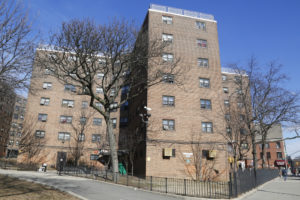-
Five Practical Uses for an ABLE Account
-
- ABLE Account
- Achieving a Better Life Experience Act of 2014
- Care Planning
- Caregivers
- Disability
- Elder Law
- Estate Planning
- Jacksonville
- Life Care Planning
- North Florida
- Orange Park
- people with disabilities
- People with Intellectual or Developmental Disabilities
- Providing for a Child with Special Needs
- Resources
- Social Security Income
- Special Needs Trust
Federal Housing Agency (Finally) Releases ABLE Guidance
For several years it has been clear that ABLE accounts – a new form of tax-free savings account for certain people with disabilities – would not affect a person’s eligibility for important government benefits like Supplemental Security Income (SSI) and Medicaid. But the U.S. Department of Housing and Urban Development (HUD) has been silent on how money in these accounts would affect enrollees in its housing assistance programs, such as Section 8.

HUD finally broke its silence on April 26, 2019, issuing a Notice to state housing agencies concerning the impact of ABLE accounts on eligibility for Section 8 vouchers, public housing and a host of other federal housing programs. The guidance is good news for beneficiaries of public housing programs who wish to open ABLE accounts.
ABLE accounts, similar to tax-free 529 accounts for education, were created by the passage of the Achieving a Better Life Experience (ABLE) Act in 2014. People may contribute up to $15,000 into these accounts annually, and as long as the account total does not exceed $100,000 and the funds are used for disability related expenses, the account holder’s eligibility for many means-tested public benefits is not affected.
HUD’s Notice specifies that for the purposes of determining eligibility for many of its housing programs, the agency will disregard any funds in a person’s ABLE account when calculating the person’s assets.
The only exception is where the money deposited into the ABLE account is the account holder’s own wage income, which will continue to count as the person’s own asset. However, the Notice specifies that wage income earned by a third party, such as a family member or friend, that is distributed into an ABLE account will not count against the ABLE account holder.
The ABLE National Resource Center, a collaborative founded and managed by National Disability Institute, issued a statement applauding HUD’s Notice: “The ABLE National Resource Center (ABLE NRC) is pleased to see that the guidance acts to reinforce the language, spirit and congressional intent of the ABLE Act to ensure that ABLE accounts should ‘supplement, but not supplant’ public benefits being provided to the ABLE account owner, including supports and services provided by HUD programs.”
Along with public housing and the Section 8 program, the Notice also applies to the following programs: Section 202 Project Rental Assistance Contract (PRAC), Section 202 Senior Preservation Rental Assistance Contracts (SPRAC), Section 811 PRAC, Section 811 Project Rental Assistance (PRA), Section 236 (including RAP), and Section 221(d)(3)/(d)(5) Below Market Interest Rate (BMIR).
To read the Notice form HUD, click here.

